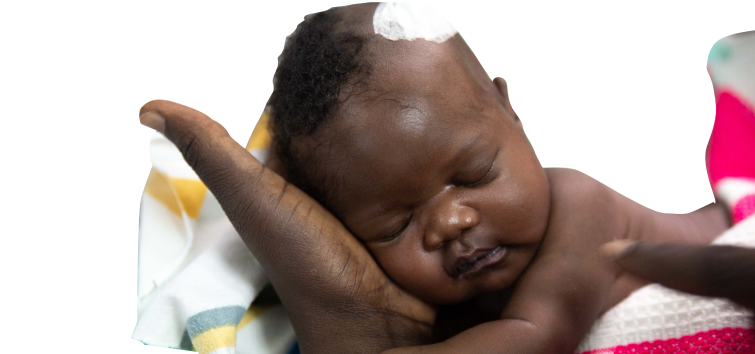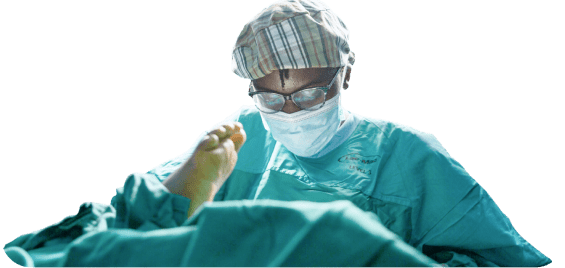Restoring Hope for Children with Epilepsy: CURE Uganda’s New Service
Epilepsy, a neurological disorder characterized by recurrent seizures, affects millions of children globally. However, in Uganda, the challenges posed by this condition are worsened by a shortage of healthcare professionals, political and economic instability, and limited access to medical resources—especially for those in rural communities.
Epileptic seizures can have a debilitating impact on a child’s quality of life and long-term development. Without intervention, severe epilepsy can be devastating—causing brain damage and even death. It prevents children from reaching milestones, attending school, and living independently.
Addressing comprehensive care for pediatric epilepsy has been a pressing need in Uganda, especially for patients who could benefit from surgical intervention. When properly diagnosed and treated, children with epilepsy can live normal, seizure-free lives. To see more children receive the care they need, CURE Children’s Hospital of Uganda (CURE Uganda) is expanding services for Uganda’s more than 10,000 children who could benefit from epilepsy surgery.

National and International Collaboration and Training
For the past two years, CURE Uganda has been on a journey to enhance treatment options for epilepsy. The hospital has worked in collaboration with various partners, including the ROW Foundation, the neurosurgery and epilepsy program at Ann and Robert H. Lurie Children’s Hospital of Chicago, and the pediatric neurology and epilepsy programs at Mulago National Referral Hospital and St. Francis Hospital Nsambya in Uganda.
Doctors from Lurie Children’s Hospital began by training CURE’s surgical team on performing and interpreting an electroencephalogram test (EEG). This is a crucial step in diagnosing the cause of epilepsy and determining whether surgery would be helpful. And because epilepsy treatment takes a multidisciplinary approach—including neurosurgeons, neurologists, radiologists, and others—members from each hospital meet regularly via Zoom to discuss the best approach to care for each patient.
In October 2023, Neurosurgeon Dr. Sandi Lam from Lurie Children’s Hospital provided hands-on training to CURE’s neurosurgical team on a less invasive surgery called a vertical hemispherectomy. Because this more targeted approach involves smaller incisions to surgically treat areas of the brain affected by epilepsy, recovery is faster and kids can get back to being kids sooner.
“I think the care of children with epilepsy needs many teammates and takes on many forms,” said Dr. Lam. “Medications are an important aspect, and surgery is an important tool that we can use against epilepsy in well-selected patients.”
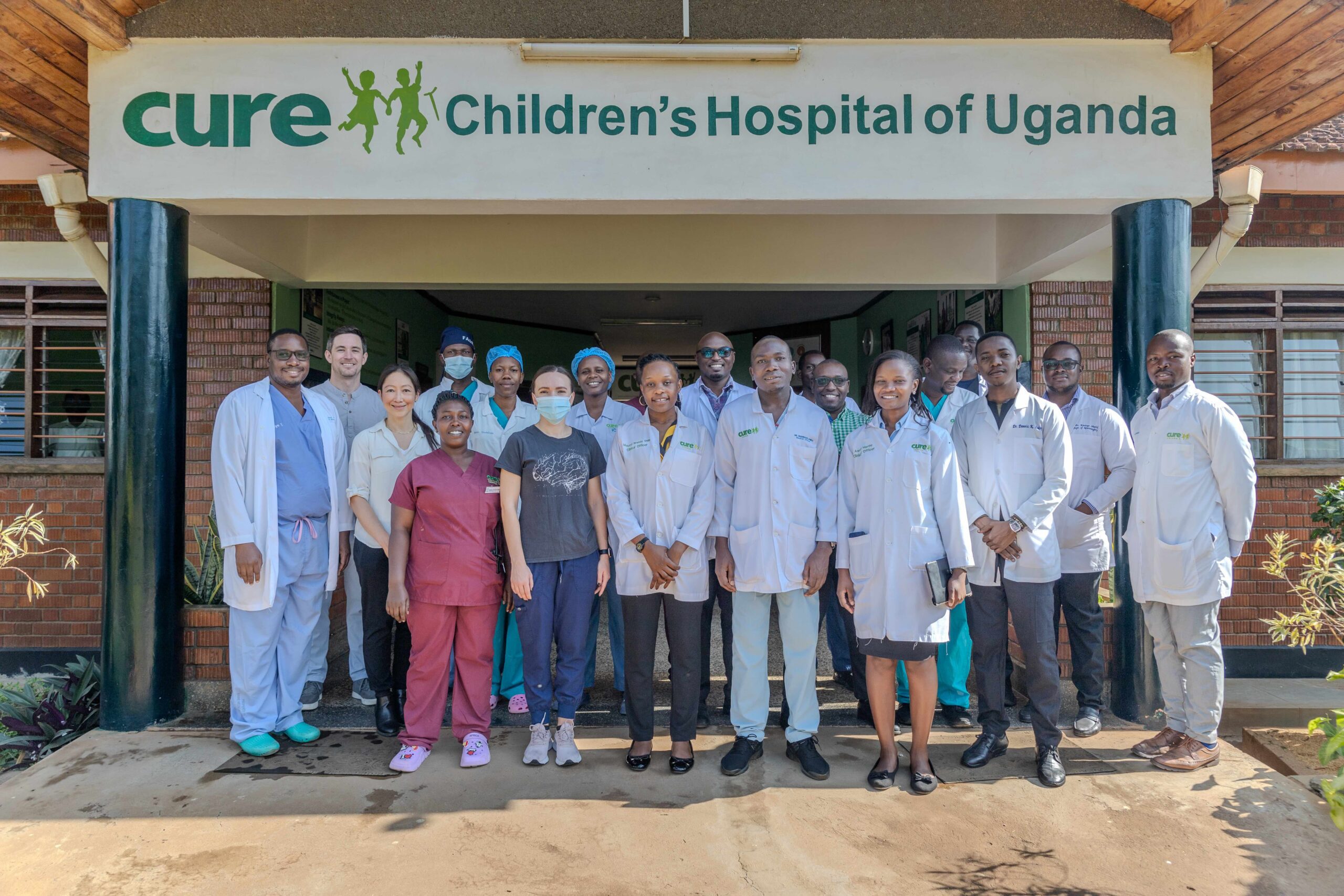
CURE Uganda’s partnership with Lurie Children’s Hospital profoundly impacts pediatric epilepsy care in the country and improves the lives of many children—like Wilson.
Wilson’s Story
Wilson, a 14-year-old boy, struggled with constant seizures due to epilepsy and endured harsh judgment from others who misunderstood his condition. He struggled to perform everyday tasks and complete his schoolwork.
“Wilson’s condition has led most people to call him demonic due to their lack of awareness about neurological disabilities. Many of them shy away from socializing with him,” said Betty, Wilson’s sister.
Despite the challenges, his family persisted in their search for treatment and learned about CURE Uganda—a place of hope for children with neurological disorders like Wilson’s.
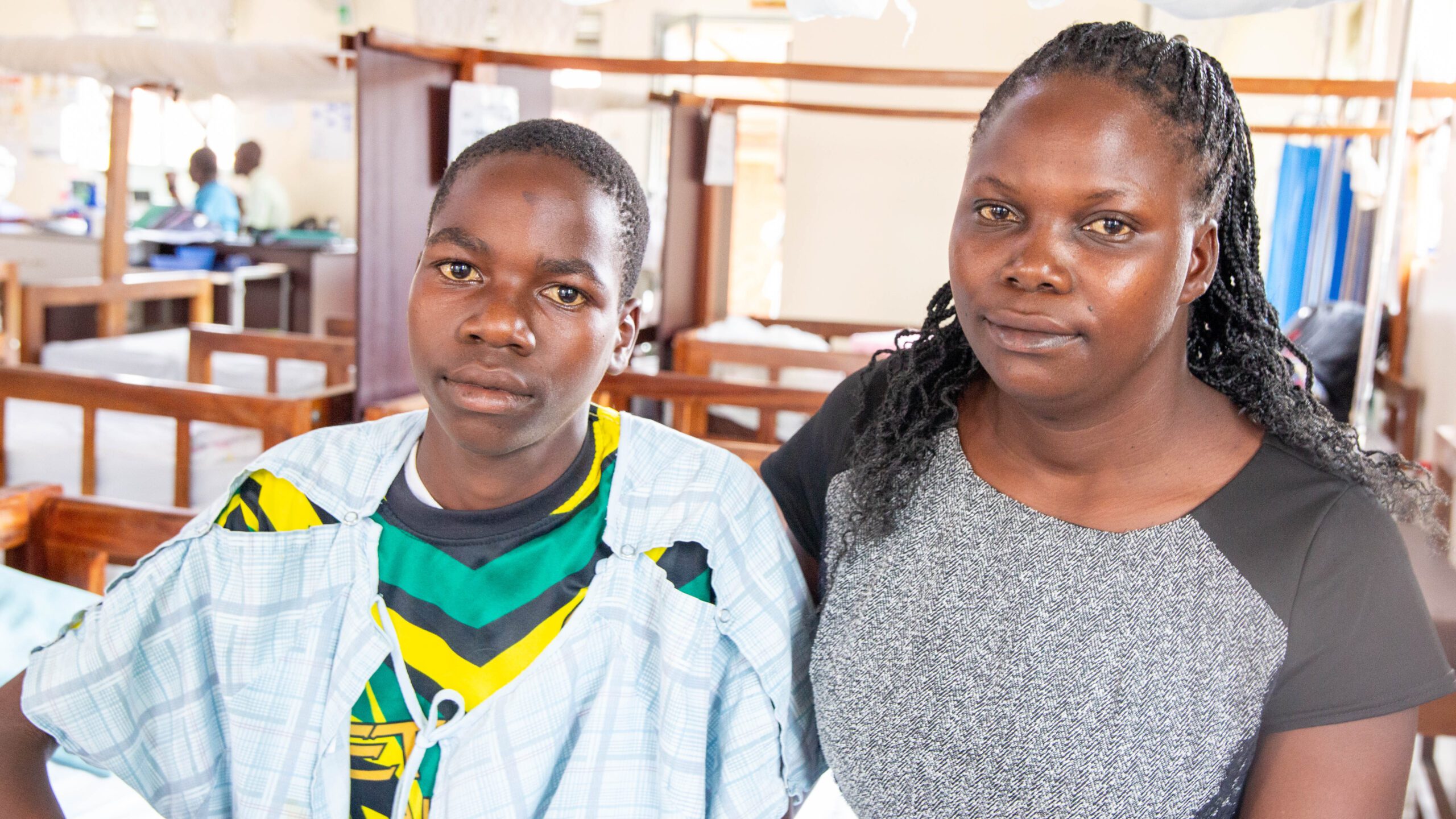
At CURE, Wilson underwent a series of tests and consultations. The medical team first prescribed anti-seizure medication, which did not prove to be effective in managing his condition.
“He no longer experiences the debilitating seizures as before. This is a significant improvement,” Betty said as they waited for Wilson’s surgery day with anxiety and anticipation.
On surgery day, Dr. Sandi Lam and Dr. Emmanuel Wegoye, CURE Uganda’s Medical Director, skillfully performed the nine-hour procedure without complications. Wilson was transferred to the intensive care unit (ICU) for postoperative monitoring, where his recovery journey began.
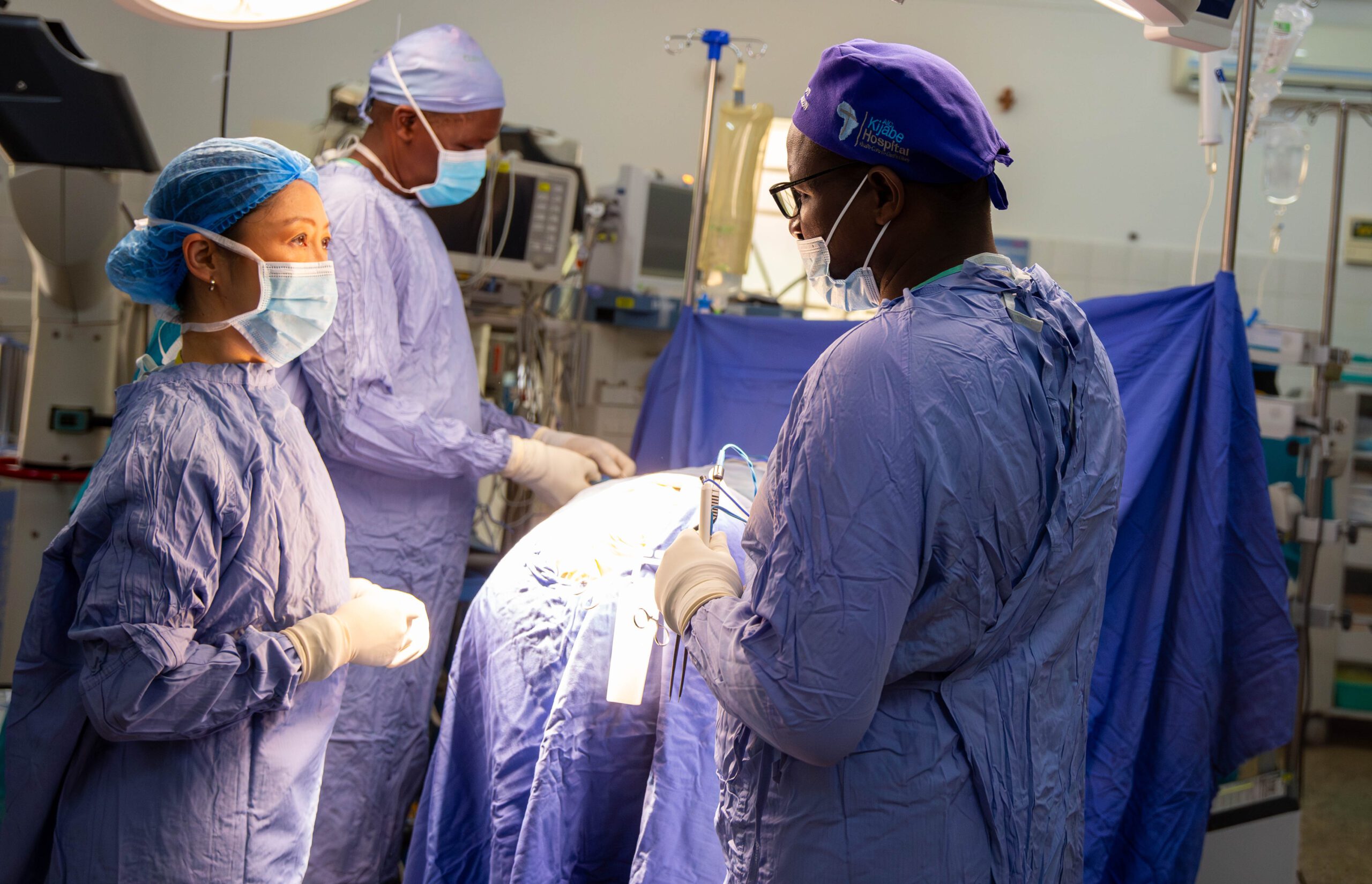
Wilson displayed resilience in the ICU, communicating with visitors despite his discomfort. His doctors closely monitored his progress, adjusting his medications to ensure his comfort and stability. Meanwhile, Wilson’s family and the hospital staff remained steadfast in their prayers and support.
After observation, Wilson was discharged from CURE Uganda and recovered at home. He has regained his ability to perform daily tasks independently, a testament to the surgery’s success. At a follow-up appointment, Wilson’s family rejoiced at the transformative impact the surgery has had on his life.
Wilson’s story proves the power of proper medical intervention. CURE is thankful for the generous partners worldwide who make it possible for our surgeons to bring life-changing surgeries and compassionate care to children who urgently need it.
To help other kids like Wilson receive the lifesaving care they desperately need, consider donating to CURE Uganda.
About the CURE Children’s Hospital of Uganda
CURE Children’s Hospital of Uganda has been a place of hope since opening its doors in 2001. It is one of Africa’s leading pediatric hospitals for brain surgery and the treatment of neurological conditions. Our teaching hospital has an 18-bed Intensive Care Unit and 59 ward beds, three operating rooms, and an outpatient clinic. In addition to world-class medical care, our team ministers to the emotional and spiritual needs of our patients and their communities.
